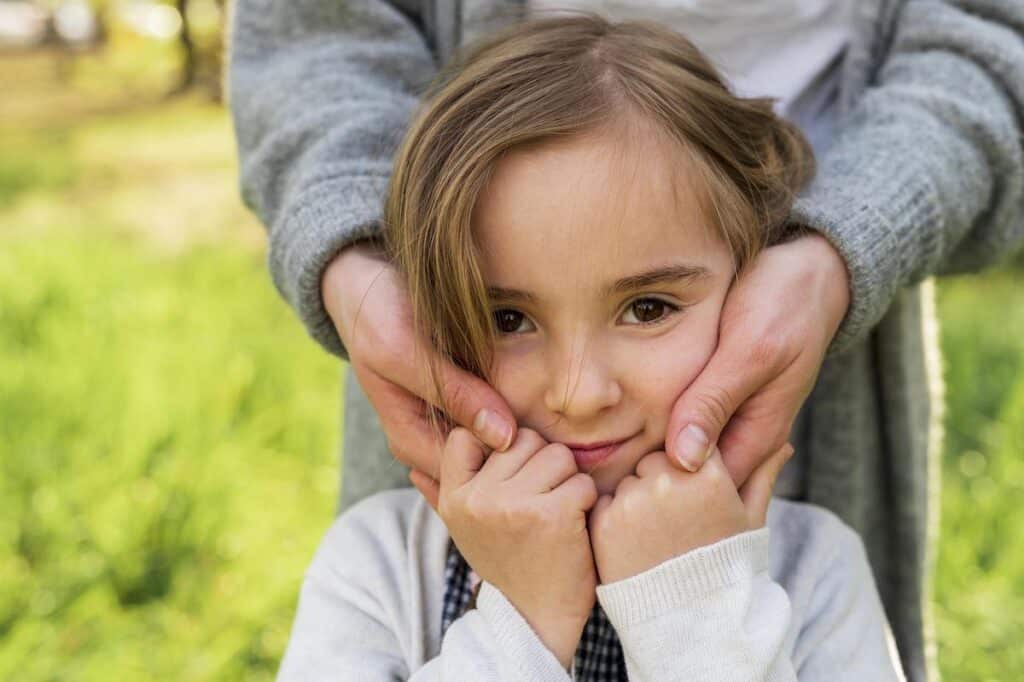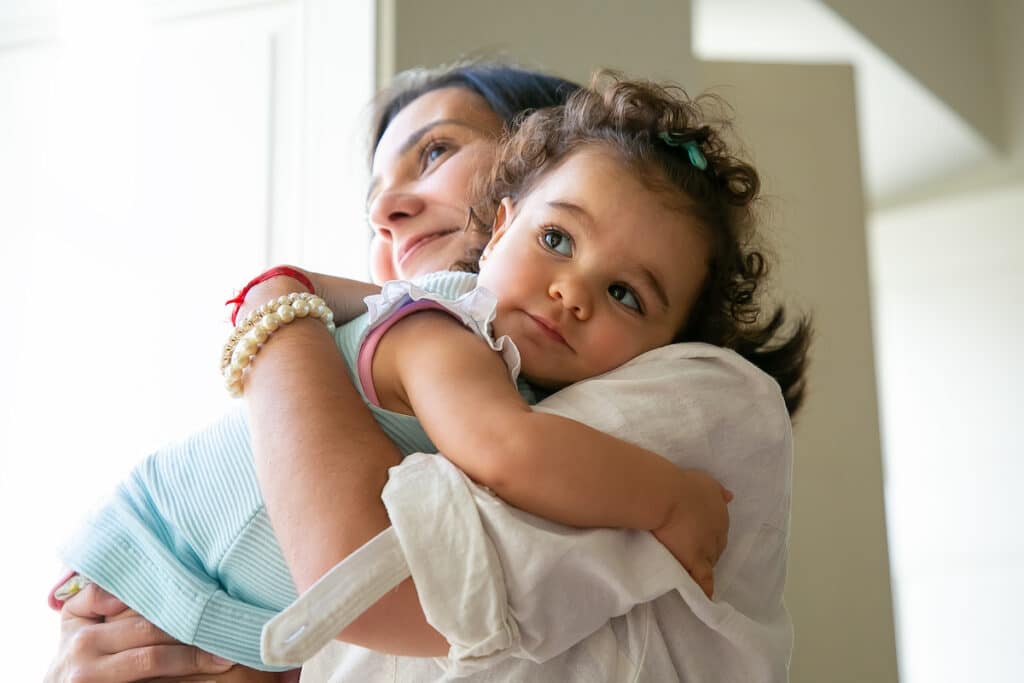In recent decades, research has shown that parents’ choices can significantly affect their child’s development. This knowledge has empowered parents to make more informed decisions.
The emphasis is on evidence-based parenting practices, while outdated or harmful methods are being phased out. This increased awareness of the role of parents has created a more supportive and nurturing environment for children to grow up in and become healthy, happy adults. Read on to find out how far parent influence on children go and how you can take control of this sway of yours.
The Complexity Of Child Development
To help children reach their full potential, the role of parents is to provide basic components of nurturing care like optimal health, sufficient nutrition, a safe and secure environment, responsive caregiving, and access to learning opportunities. These factors are interdependent. They work together to create an environment that supports children’s healthy growth and development. A child’s overall development may be negatively impacted if any of these components are neglected.
Genetics, the biological factor inherited from ancestors, plays an important role in child development and should not be ignored. Experts have debated the relative impact of genetics and environment, or nature vs. nurture, on a person’s development.
It’s important to acknowledge that both factors play a role in shaping our identities. While not as tangible as other factors, genetics must be considered when considering human development.
For instance, while a combination of genetics and environment influences intelligence, studies have shown that genetics play a significant role in determining a child’s cognitive abilities. Genetics can also influence a child’s temperament and personality traits, such as shyness or impulsivity. Biological inheritance does not determine everything about a child’s development but significantly impacts their growth and progress.
How Parenting Affects Child Development
Experts agree that a child’s early experiences significantly impact their developmental outcomes and also that parent influence on children is really important. Providing nurturing care and appropriate stimulation during their formative years can greatly enhance their growth in specific areas. Conversely, a child’s lack of positive experiences or neglect can hinder their development and growth. The impact of parenting styles on child development is major.
1. Physical Development
Parents play a vital role in their child’s physical development by encouraging healthy lifestyle choices. This can be achieved by providing a balanced diet, promoting physical activity, and ensuring proper healthcare.
A balanced diet of fruits, vegetables, whole grains, lean proteins, and low-fat dairy products is essential for optimal growth and development. Parents’ influence on children can positively encourage them to engage in age-appropriate physical activities like sports, games, and other exercises. This helps develop their muscles and bones and maintain a healthy weight. Regular doctor visits, vaccinations, and treatment for any medical conditions or injuries are necessary to ensure physical well-being.
2. Emotional Development

Supportive parent-child interactions and emotional socialization within the family are predictors of a child’s psychological well-being. When parents fail to guide their children’s emotional development and ignore or dismiss their feelings, they hinder their normal development. Therefore, parental influence on children’s behavior may lead to planting the first seeds for poor mental health.
👉The words that you use in your efforts to educate your children are shaping their self-image. Our thought-provoking article on “Things Parents Shouldn’t Say to Their Child” sheds light on the power of our language and provides essential guidance on fostering positive communication. Don’t let unintentional words hinder your child’s growth and development. Take action now and equip yourself with the knowledge and tools to create a loving and empowering environment where your child can thrive.
Conversely, a child who grows up in a secure and supportive environment with parents who provide love, affection, and emotional guidance will likely have enhanced emotional intelligence.
It’s fascinating to observe how parents influence their child in shaping their emotional development. Parents can help their children navigate feelings by teaching them how to identify and express themselves healthily.
This can be achieved by encouraging open communication, listening actively to their child’s concerns, and modeling appropriate emotional responses. A child who was taught to pay attention to other people’s feelings and express empathy will be kind, patient, and considerate.
3. Behavioral Development
Children tend to take on the behaviors they see in their families. Language, attitudes towards others, being accountable for mistakes, or attitudes related to discipline and learning are all factors through which parents’ influence on children acts out. Therefore, parents should be mindful of the environment they create at home.
Modeling positive behavior and attitudes is essential. Parents who exhibit respect, kindness, and empathy towards others provide an example their children can follow. When the child has a parent role model, it will be easy for him to understand how to act in different circumstances.
For instance, if a child is exposed to a caring attitude toward animals or plants, they are more likely to develop warmth, empathy, and a sense of responsibility. On the other hand, if parental influence on children involve violence and poor anger management skills, they are more likely to adopt those behaviors.
4. Cognitive Development
Parents can impact their child’s cognitive development from early childhood by creating a stimulating environment. Providing children with toys, games, and books that challenge their cognitive abilities can create an active learning environment. Reading to children early can improve their language skills and imagination, while educational activities like learning a new language can enhance their cognitive development.

To get involved in their child’s academic progress, parental influence on children can instill a sense of duty regarding homework and can encourage children to pursue their interests. Exposing children to new experiences like family educational trips or extracurricular activities are other effective strategies that promote learning.
5. Social Development
Parents are the first figures responsible for helping their children develop social skills and build healthy relationships with close family members and other people. This can be achieved by using parental influence on children to model appropriate social behavior, encourage positive interactions, and provide opportunities for socialization. Celebrating traditions with family and friends and practicing group sports and activities create opportunities for children to interact with others and develop social skills.
Additionally, parents and caregivers are advised to model social inclusiveness. Demonstrating care and love towards all individuals, regardless of physical appearance, beliefs, or abilities, can shape children’s social attitudes and behaviors.
What is the Parent Influence on Children? The Science Behind This
1. Parenting Styles
Parenting styles refer to the attitudes and practices that parents adopt, which can impact their children’s development. There are 4 parenting styles that vary significantly in terms of the relationship between parents and children.:
- Permissive parents prioritize giving their children positive experiences and provide little structure. Although children might sometimes enjoy the freedom they receive, the lack of consistency and rules can make them feel inadequate and confused in unfamiliar settings.
- Authoritative parents set clear boundaries while using warmth and understanding to discipline their children. This results in independent, self-sufficient, and caring children. The focus is on personal development and consistent growth, but it also respects the child’s rhythm.
- Authoritarian parents impose strict rules and discourage individuality and self-expression. This can bring negative long-term consequences like impulsiveness, low self-esteem, and the inability to make confident decisions and take risks.
- Neglectful parents fail to provide basic child care to their offspring. They ignore needs such as food, shelter, and emotional support. This can lead to developmental delays, poor academic performance, and limited opportunities for success in the future.
👉Are you seeking ways to enhance your parenting skills? Look no further than our article on “What are the different parenting styles?“. You’ll be equipped with the knowledge to create a nurturing and supportive environment that fosters optimal development.
Many benefits are found when parents take time to reflect on the impact of parenting styles on child development. It helps them analyze their beliefs and practices and pinpoint areas where they could change their approach to support their child’s development. This, in turn, creates a nurturing and supportive environment that promotes the child’s physical, social, and emotional well-being.
2. Parent-child attachment
Attachment refers to the affective connection that forms between people as they interact. British child psychiatrist John Bowlby is the father of the attachment theory. His research proved that children who don’t create a powerful bond with their primary caregivers are likelier to develop behavioral and emotional problems, such as anxiety and depression.
Bowlby concluded that young children need to develop a relationship with at least one primary caregiver to develop normally socially and emotionally. Although parents are the main factor in determining a child’s attachment style, other factors can also influence it.

There are four basic attachment styles: secure, anxious, avoidant, and disorganized.
- Secure attachment is the healthiest form of attachment between children and their caregivers, as it promotes positive social and emotional development. For this type of attachment, the relation between parents and children needs to be balanced and healthy.
- Anxious attachment can develop when caregivers are inconsistent in their responses, leading to fear of rejection and difficulty tolerating being in other people’s care.
- Avoidant attachment is when children suppress their natural urge to seek comfort from caregivers, leading to difficulties in forming and maintaining a healthy relation between parents and children.
- Disorganized attachment can develop in children who have experienced childhood trauma, abuse, or neglect, leading to conflicting emotions and behaviors. All forms of attachment can have long-term effects on a child’s social and emotional development.
Usually, a child’s behavior may indicate one of these four. However, it may happen for children to exhibit behaviors typical of other attachment styles during different stages of development. For instance, they may become clingy around strangers or show signs of asserting their independence, even if they have a secure attachment style.
By understanding the highlights of the attachment theory, parents and caregivers can provide a nurturing and supportive environment for children to flourish and grow.
3. Parental Involvement
The demands of modern life can make it challenging for parents to balance their schedules with the needs of their children. While statistics show that we spend more time with our children than previous generations, the age at which children first develop mental health issues is dropping. This is raising concerns about the effectiveness of current parenting approaches.
A contributing factor is the fast-paced rhythm of modern society, which can create a stressful environment for families. Parents might get overly focused on providing material comfort for their children, at the expense of emotional support and attention. Parents may also struggle to manage their own stress and mental health, which can inadvertently affect their children’s well-being.
To address these issues, parents must balance daily stress with leisure and relaxing family moments. This can involve setting aside time for family activities, such as game nights or outdoor outings, that allow for meaningful connection and bonding.
Additionally, parents can prioritize their own mental health needs by seeking support and practicing self-care. This can help them better manage stress and create a more positive and supportive environment for their family while becoming more considerate about parents’ influence on children.
4. Parental Warmth and Support
Warmth and support can foster parents’ effects on children that maximize their self-esteem, resilience, and emotional intelligence. Emotional intelligence is an important aspect of a child’s development, and research has found that it can significantly impact their overall well-being.
Receiving warmth and support is known to have a great impact on brain development. Emotionally intelligent children have been shown to have more activity in specific regions of the brain associated with emotional processing and regulation.
They have been found to exhibit greater activity in the prefrontal cortex, an area of the brain responsible for many important cognitive functions, such as decision-making, impulse control, and emotion regulation. This suggests that the brain can adapt and change in response to experiences and the environment.
5. Parental Discipline
Regarding discipline, parents’ methods can affect a child’s behavior, sense of self-worth, and overall emotional development. Parents should choose to use effective and positive disciplinary techniques, such as setting clear boundaries, consistent consequences, and positive reinforcement, to promote healthy development in their children.
👉It’s time to work on your discipline approach with our insightful article on “How to Discipline Your Child That Doesn’t Listen in the Smart and Healthy Way.” Say goodbye to ineffective methods and hello to a smarter, healthier approach that promotes growth and cooperation.
Harsh or inconsistent disciplinary practices can significantly negatively impact a child’s mental health and long-term behavior patterns. Children frequently subjected to harsh discipline, such as physical punishment or verbal aggression, may experience higher levels of anxiety and depression, as well as increased aggression and delinquent behavior.
6. Genetic and Environmental Factors
Both genetic and environmental factors play a significant role in child development. Children inherit genetic traits from their parents that can affect their physical and cognitive development and give them susceptibility to certain health conditions.
Although new research in epigenetics teaches us that environmental factors can somewhat influence biological inheritance, parents can focus on being mindful of the aspects under their control.
One example is prenatal care. The quality of prenatal care a mother receives during pregnancy can significantly impact the child’s development. Adequate prenatal care can help ensure the mother’s health and provide the necessary nutrients for the baby’s growth and development.
Another aspect to focus on is providing appropriate nutrition to children. Malnutrition or insufficient nutrient intake can lead to stunted growth, compromised immune system function, and cognitive impairments.
Although avoiding exposure to environmental toxins, such as lead or pesticides, is not completely under our control, parents can make choices that do not add more stressors to their children’s health. Making healthy food choices, avoiding frequent administration of antibiotics and over-the-counter medicine, and taking children to regular check-ups are examples of parents’ influence on children that can promote great physical health and overall well-being.
Concerning healthy emotional development, parents should acknowledge that exposure to chronic stress, such as family conflict or poverty, can greatly impact a child’s development. Chronic stress can lead to changes in brain development and function and increased risk for mental health issues.
One solution is to provide a stable and supportive home environment for the child. This can involve taking advantage of the parents’ influence on children to set clear boundaries, establish routines, and create a sense of predictability and safety. Encouraging healthy habits, such as exercise and mindfulness practices, can also help children develop resilience and the ability to manage stress effectively.
Final Word
Scientific research has identified several key elements that can greatly benefit a child’s development and well-being. These include understanding a child’s emotional and physiological needs, recognizing and embracing one’s parenting style, questioning traditional practices, and creating a secure attachment with children.
By considering these factors, adults can upgrade their parental influence on children’s behavior to more informed and confident choices. The age-old debate of nature vs. nurture is not as relevant regarding being a good parent as the willingness to learn and adapt can lead to the best outcomes for children.
Now, living in the era of communication is a double-edged sword. We have access to a wealth of information, technology, and scientific knowledge. However, the role of parents is also to face the challenge of dealing with misleading and fake news, which can be overwhelming. Finding reliable and trustworthy information on parenting can be particularly difficult.
Therefore, parents should be cautious when evaluating sources of information and seek out credible and evidence-based resources. Our work focuses on getting the most valuable and updated information and scientific research in parenting and child development.
Moreover, our aim is to ensure that this knowledge is easily accessible, comprehensible, and relevant to parents across the globe. Take a proactive step – enroll in one of our online masterclasses and unlock those enlightening “a-ha” moments. Discover more about parent influence on children and also effective ways to navigate challenges and foster a harmonious family environment. Embrace the opportunity today!
References
Darrell A. Worthy, Caitlin C. Brez, Arthur B. Markman & W. Todd Maddox (2011) Motivational Influences on Cognitive Performance in Children: Focus Over Fit, Journal of Cognition and Development, 12 (1), 103-119, https://doi.org/10.1080/15248372.2010.535229
Dolby, R. (2007). The Circle of Security: Roadmap to building supportive relationships. https://prontopediatra.files.wordpress.com/2013/12/roadmap-to-building-supportive-relationships-inglese.pdf
Grusec, J.E. (2011). Socialization processes in the family: social and emotional development. Annual Reviews in Psychology 62, 243-269. https://doi.org/10.1146/annurev.psych.121208.131650
Hayek, J., Schneider, F., Lahoud, N., Tueni, M., & de Vries, H. (2022) Authoritative parenting stimulates academic achievement partly via self-efficacy and intention towards getting good grades. PLoS ONE 17(3): https://doi.org/10.1371/journal.pone.0265595
Hosokawa, R.; Katsura, T. (2019). Role of Parenting Style in Children’s Behavioral Problems through the Transition from Preschool to Elementary School According to Gender in Japan. International. Journal of. Environment Research and Public Health, 16(21). https://doi.org/10.3390/ijerph16010021
Kuppens, S., & Ceulemans, E. Parenting Styles: A Closer Look at a Well-Known Concept. Journal of Child & Family Studies 28, 168–181 (2019). https://doi.org/10.1007/s10826-018-1242-x
Moretti, M., & Peled, M.A. (2004). Adolescent-parent attachment: Bonds that support healthy development, Paediatrics & Child Health, 9(8), 551–555, https://doi.org/10.1093/pch/9.8.551
National Scientific Council on the Developing Child. (2018). Understanding Motivation: Building the Brain Architecture That Supports Learning, Health, and Community Participation. Center on the Developing Child at Harvard University, 14. https://harvardcenter.wpenginepowered.com/wp-content/uploads/2018/12/wp14_reward_motivation_121118_FINAL.pdf
National Scientific Council on the Developing Child. (n.d.) Three Core Concepts in Early Development. Harvard University. https://developingchild.harvard.edu/resources/three-core-concepts-in-early-development/
Nelson, C. A., III. (2011). Neural development and lifelong plasticity, 45-69. Cambridge University Press. https://doi.org/10.1017/CBO9780511975394.003
Ortiz-Ospina, E., (2020). Are parents spending less time with their kids? Our World in Data. https://ourworldindata.org/parents-time-with-kids
Piotrowski, J.T., Lapierre, M.A. & Linebarger, D.L. (2013) Investigating Correlates of Self-Regulation in Early Childhood with a Representative Sample of English-Speaking American Families. Journal of Child and Family Studies, 22, 423–436. https://doi.org/10.1007/s10826-012-9595-z
Polderman, T. J., Benyamin, B., de Leeuw, C.A, Sullivan, van Bochoven, A., Peter M Visscher, P.M., & Posthuma, D. (2015). Meta-analysis of the heritability of human traits based on fifty years of twin studies. Nature Genetics, 47(7), 702-709. https://doi.org/10.1038/ng.3285
Schimmenti, A., & Bifulco, A. (2015). Linking lack of care in childhood to anxiety disorders in emerging adulthood: The role of attachment styles. Child and Adolescent Mental Health, 20(1), 41–48. https://doi.org/10.1111/camh.12051
Seth, M. & Ghormonde, L. (2013). The Impact of Neglectful Parenting Style on Educational Performance of Learners at High School Level. International Educational E-Journal, 2(4). https://www.oiirj.org/ejournal/oct-nov-dec2013/edu/06.pdf
Shemmings D (2011) Attachment in Children and Young People. Dartington -Research in Practice. https://www.cumbria.gov.uk/eLibrary/Content/Internet/537/6683/6687/6689/6821/42962121510.pdf
van der Horst, F., Zetterqvist Nelson, K., van Rosmalen, L., & van der Veer, R. (2020). A Tale of four countries: How Bowlby used his trip through Europe to Write the WHO Report and spread his ideas. Journal of the History of Behavioral Sciences, 56(3), 169– 185. https://doi.org/10.1002/jhbs.22016











